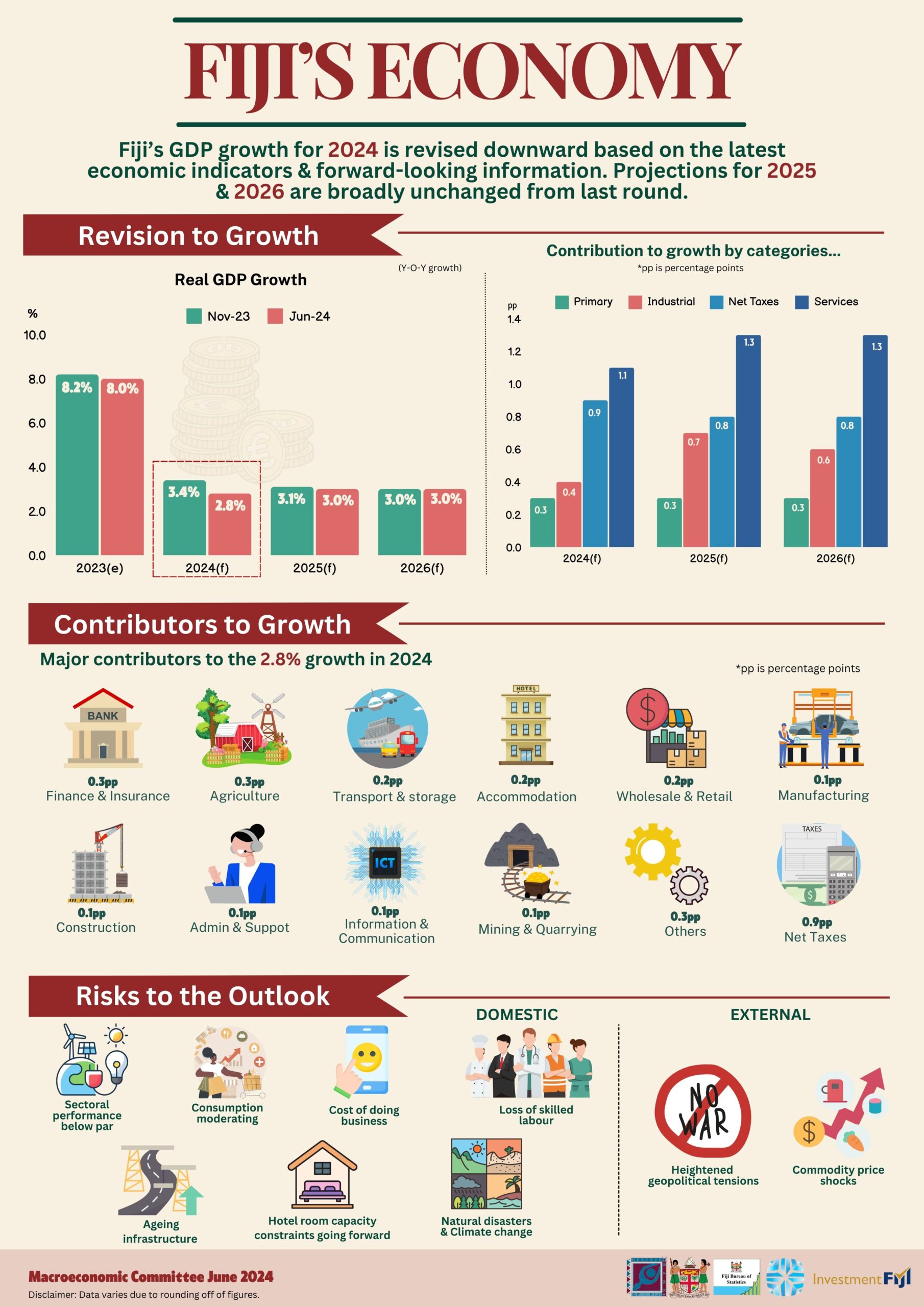Press Release No. 12/2024
Date: 12 June 2024
STATEMENT BY THE CHAIRMAN OF THE MACROECONOMIC COMMITTEE[1] AND GOVERNOR OF THE RESERVE BANK OF FIJI
MACROECONOMIC PROJECTIONS FOR THE FIJI ECONOMY (2024-2026)
The Fiji economy started 2024 on a softer note than anticipated as evidenced by partial indicators. Despite the buoyant inflow of remittances and higher incomes, growth in consumption spending has moderated largely due to the notable number of Fijian citizens migrating abroad, most of them whom are skilled and semi-skilled workers (around 15% of the total labour force). The outturn in the economy has also been impacted by elevated cost of living as inflation soared to 7.1 percent in April 2024 and lower than expected Government expenditure, the latter affected by capacity constraints. While pipeline projects look promising, investment activity is slow-paced due to several challenges, such as high building & material costs, skill shortages and red tape. Apart from the surprisingly strong growth in tourist arrivals up to April and higher gold output due to the start of production at Tuvatu Gold Mine, other sector outcomes are performing below par.
The latest available data and weaker incoming forward-looking information have led to a downward revision to Fiji’s 2024 GDP growth forecast to 2.8 percent from 3.4 percent projected in November 2023. The revised forecast takes into account the possible increase in Government expenditure in the 2024-2025 National Budget to boost the economy. The other key sectors to contribute towards this growth include the financial, agriculture, transport, accommodation, wholesale & retail sales, manufacturing, information & communication, electricity, construction, mining and administration sectors.
GDP projections for 2025 and 2026 are broadly unchanged from last November, with economic activity forecast to strengthen slightly and hover around the pre-pandemic growth trend of 3.0 percent.
Risks to the outlook are tilted to the downside and include heightened geopolitical tensions, continued loss of labour due to migration, delayed regulatory approvals, rising cost of doing business and the constant threat of climate change & natural disasters. These combined with the proposed increase in the minimum wage rate without increased productivity will raise input costs for businesses resulting in higher prices of goods and services that are likely to be passed down to consumers, affecting inflation and economic activity.
The next review of macroeconomic projections will be in Quarter Four, 2024.
ARIFF ALI
Chairman of the Macroeconomic Committee
[1] The Macroeconomic Committee is made up of heads and senior representatives from the Ministry of Finance; Fiji Bureau of Statistics; Ministry of Trade, Co-operatives, Small and Medium Enterprises, Ministry of Tourism and Civil Aviation, Office of the Prime Minister; Investment Fiji; Fiji Revenue & Customs Service and the Reserve Bank of Fiji.


